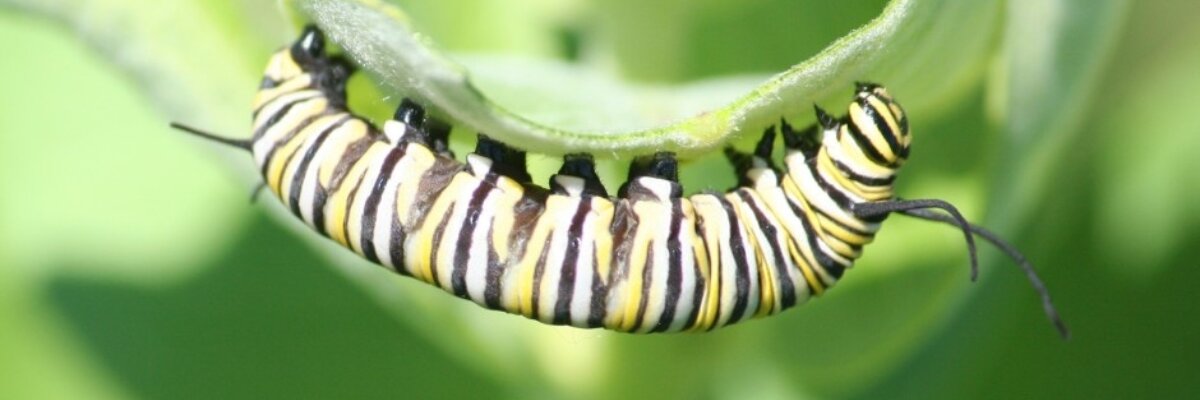
Why is it important that the monarch population is declining? Does the decrease of monarch butterflies have any consequences on any other species?
Conserving the monarch population is important for many reasons, from ecological reasons to educational and inspirational ones.
First of all, monarchs are pollinators, and need the same habitats (native milkweed and other nectar flowers) as many other pollinators, and even other wildlife. Therefore, if monarchs are in trouble because they don't have enough habitat, then many of our other pollinators and wildlife that share their habitat are in trouble as well. Because they are so well known and their decline is easy to see, monarchs are like the proverbial 'canary in the coal mine' for pollinators. The declining monarch population parallels other declining pollinator populations, which in turn impacts human food systems. Similarly, monarchs and other pollinators are part of a natural food web and ecosystem. Providing enough habitat, like milkweed for monarchs, is essential in maintaining a balanced food web within the ecosystems that are critical in sustaining us.
Secondly, monarchs have a unique migration which inspires interest in the natural world across the entire continent. The fact that these little insects that weigh no more than a paper clip, travel for thousands of miles to an unknown destination is a phenomenon that deserves protection for it's own sake, but also because it is an amazing way to teach the next generation about science and caring for the environment. If you've ever seen a monarch caterpillar pupate, or an adult emerge from it's chrysalis, you know how amazing their metamorphosis is too, and how excited kids and adults alike can become about it.
In order to reverse the monarch's decline for these important reasons, we need all hands on deck! Find out how you can Get Involved and take action for monarchs today.
